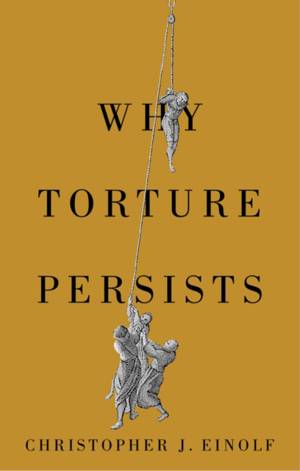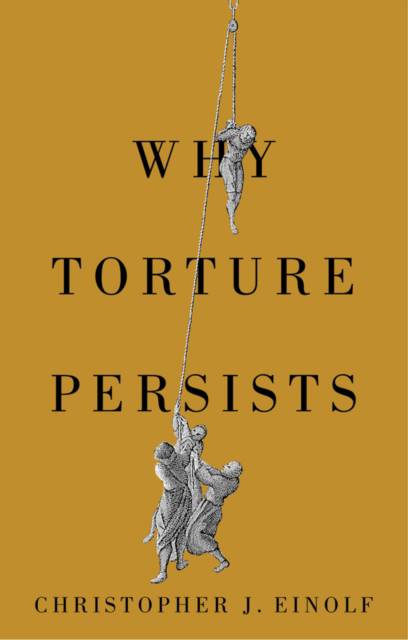
- Afhalen na 1 uur in een winkel met voorraad
- Gratis thuislevering in België vanaf € 30
- Ruim aanbod met 7 miljoen producten
- Afhalen na 1 uur in een winkel met voorraad
- Gratis thuislevering in België vanaf € 30
- Ruim aanbod met 7 miljoen producten
Zoeken
€ 43,45
+ 86 punten
Omschrijving
Since antiquity, governments have used torture to gather information and determine guilt. But its track record is shaky, to say the least: thinkers from Aristotle to the present have observed that torture does not work, and thinkers from Foucault to Orwell have doubted that this is torture's true purpose. Guilty people can resist torture and remain silent, while innocent people can give in and tell their torturers what they want to hear. Why, then, do governments keep using it?
In this timely and compelling book, Chistopher J. Einolf recounts the history of torture from public trials in ancient Athens to the international scandal of Abu Ghraib. He details its brutal use in the persecution of the Templars, the Spanish Inquisition, and early modern witch hunts; describes its abolition in the 18th century; and tracks its alarming resurgence across the 20th and 21st centuries. In exposing torture's sordid past, Einolf also explores the social science of torture, supplementing a broad historical account with relevant insights from sociology, political science, and psychology. The distressing reality is that governments use torture as a tool of oppression: convinced that they are beset by traitors and enemies, those with power torture victims until they confirm their worst fears.
Chilling yet vital, Why Torture Persists is a call to face humanity's troubling weapons of political coercion and control head-on. Despite recounting a disturbing history, Why Torture Persists ultimately concludes with hope. It is only by understanding torture that we can learn how to prevent it.
In this timely and compelling book, Chistopher J. Einolf recounts the history of torture from public trials in ancient Athens to the international scandal of Abu Ghraib. He details its brutal use in the persecution of the Templars, the Spanish Inquisition, and early modern witch hunts; describes its abolition in the 18th century; and tracks its alarming resurgence across the 20th and 21st centuries. In exposing torture's sordid past, Einolf also explores the social science of torture, supplementing a broad historical account with relevant insights from sociology, political science, and psychology. The distressing reality is that governments use torture as a tool of oppression: convinced that they are beset by traitors and enemies, those with power torture victims until they confirm their worst fears.
Chilling yet vital, Why Torture Persists is a call to face humanity's troubling weapons of political coercion and control head-on. Despite recounting a disturbing history, Why Torture Persists ultimately concludes with hope. It is only by understanding torture that we can learn how to prevent it.
Specificaties
Betrokkenen
- Auteur(s):
- Uitgeverij:
Inhoud
- Aantal bladzijden:
- 178
- Taal:
- Engels
Eigenschappen
- Productcode (EAN):
- 9781509568987
- Verschijningsdatum:
- 20/04/2026
- Uitvoering:
- Hardcover
- Formaat:
- Genaaid
- Afmetingen:
- 147 mm x 222 mm
- Gewicht:
- 420 g

Alleen bij Standaard Boekhandel
+ 86 punten op je klantenkaart van Standaard Boekhandel
Beoordelingen
We publiceren alleen reviews die voldoen aan de voorwaarden voor reviews. Bekijk onze voorwaarden voor reviews.








